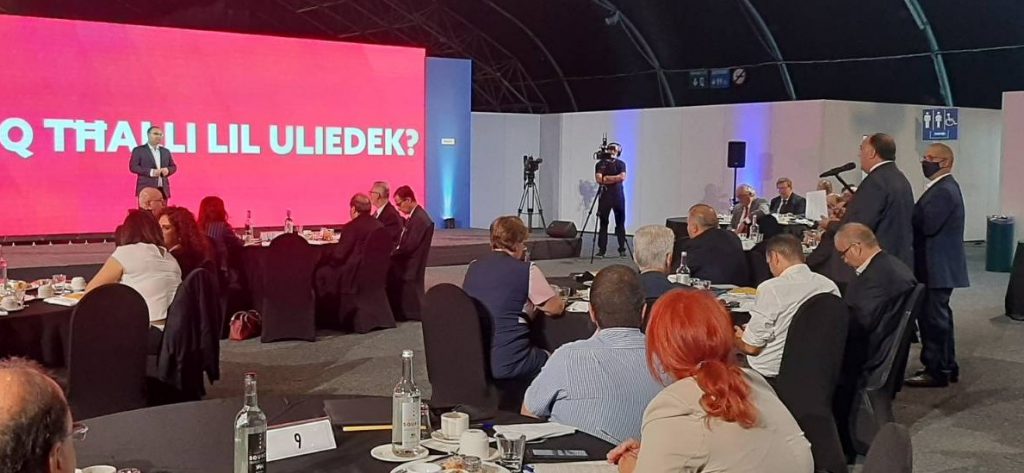Time to take ‘a bold step’ on the UHM’s employment portal proposal
Finance Minister says Maltese economy ‘not yet ready’ to consider reducing 40-hour week’

Finance Minister Clyde Caruana has declared that time is ripe for the government to take “a bold step” with regards to the UHM’s proposal for the establishment of an online contract portal as a means to fight precarious employment.
Caruana made this remark in in response to remarks by UHM Voice of the Workers CEO Josef Vella during a business breakfast marking the launch of the 2022 Pre-Budget Consultation Document. Vella remarked that the union has been advocating the launch of this portal since the 2016 Budget, but the proposal has not been implemented even though government has repeatedly declared it is on board with such measure.
Under this proposal employers will be bound to provide a written employment contract to workers which must be in line with a selection of templates which would be made available on this portal. Such model would ensure there are no forbidden clauses in breach of the employment laws while still giving ample manoeuvrability to employers as long as what is being proposed is legal.
In his response the finance minister hinted that the wait for the implementation of the portal project could be soon over.
“While I understand that employers harbour some reservations, I believe we can find a compromise on where such provision should apply to ensure that conditions of work and the payment rates do not only conform with the law but to ensure what the EU calls upward convergence,” Caruana said.
He added that “time is ripe that government finds a way to take a bold step to move towards that direction”.
During the debate the UHM CEO also floated some other proposals which the union will be officially unveiling the coming days for the 2022 Budget. Vella floated the idea of launching a pilot project on the feasibility of reducing the 40-hour week. The proposal is based on evidence in Scandinavian countries whereby it emerged that in certain categories the levels of productivity remained the same despite employees working less than 40 hours per week. Moreover, such model would also translate to a family-friendly measure, higher hourly salary rates and ultimately a better quality of life.
However, the finance minister poured cold water on this proposal saying that this was not the time for such measure as in his opinion employers were still recovering from the “shocks” caused by Covid-19. “I don’t think this is the right time to head towards such direction. We have not yet reached the right stage of economic development. We will probably be ready in a number of years when maybe this will be the next natural stage of our economic development,” the finance minister said.
The UHM CEO also called for stronger efforts so that our educational system caters for students aged from 13 to 16 who are not inclined to take an academic route and are ending compulsory education with no qualifications whatsoever and no possibility to enter institutions such as MCAST. Vella said it was important to provide these students the opportunity to develop vocational skills which are very much sought in the manufacturing and services industry.
UHM Assistant Director Mario Sacco spoke on the need to ensure that employees working with a contractor within the government sector through outsourcing agreements, benefit not only from the same employment conditions at the start but are also eligible for the same increments and progression opportunities like the government employees with whom they share their workplace.
